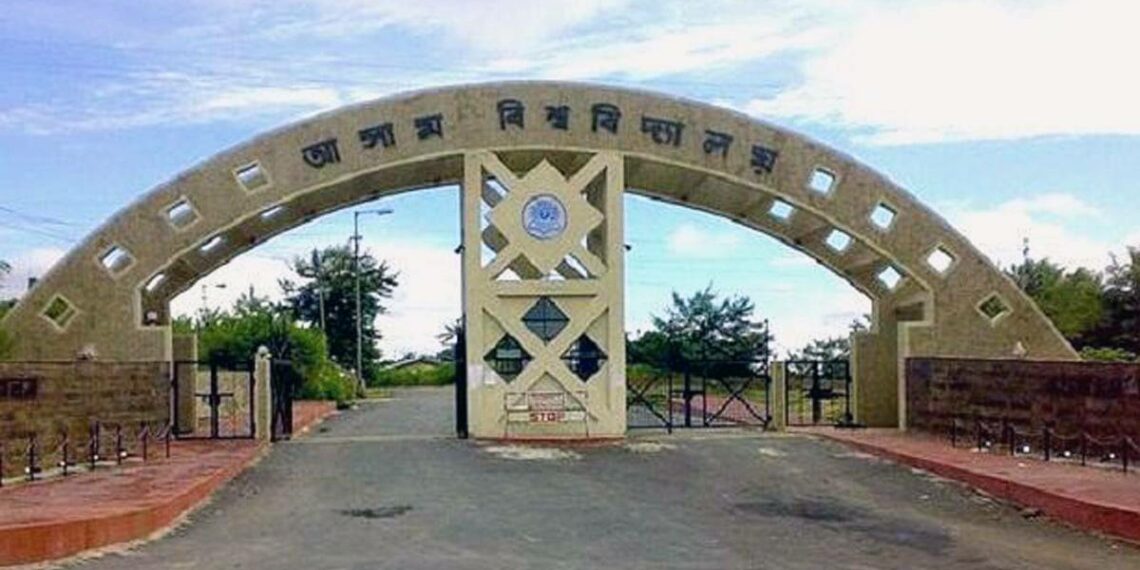GUWAHATI: In a remarkable stride in academic research, the Department of Chemistry at Assam University, Silchar, has secured its inaugural patent through the pioneering invention of organic photosynthesis, hailed as an anti-HIV agent.
The groundbreaking patent is the brainchild of Dr Devashish Sengupta and his team, in collaboration with the Department of Life Sciences and Biotechnology at the South Asian University (SAU) in New Delhi.
Dr Sengupta, in an interview with an Assam daily, explained that under photodynamic conditions, the developed agent effectively targets and destroys the HIV virus, regardless of its DNA or RNA composition.
He highlighted the potential of this breakthrough not only in HIV treatment but also in addressing cancer among HIV patients.
Traditionally, HIV treatment involves a prolonged regimen of drugs, which may increase the risk of cancer.
The team’s innovation offers a synergistic approach to combat both HIV and associated cancers.
Moreover, Dr Sengupta, along with Dr Debdulal Sharma from Assam University, and Prof. Ritu Gaur and Madhu Rai from SAU, has devised a scalable method for synthesising water-soluble fullerene-meso-tris-carboxyphenyl porphyrin dyads.
These dyads have shown remarkable efficacy in impeding the entry and replication of HIV-1 subtypes B and C.
Dr Sengupta highlighted the significance of this patent in potential anti-cancer treatments for HIV patients, pending in vivo studies on primates.
According to Prof. Piyush Pandey, the IQAC coordinator of Assam University, this patent marks one among over 16 patents awarded to the university in the past three years.
Prof. Rajive Mohan Pant, the vice-chancellor of the university, lauded Dr Sengupta and his team for this significant achievement, recognising it as a cornerstone in safeguarding the university’s intellectual property.















